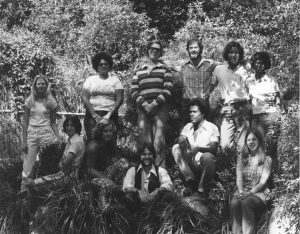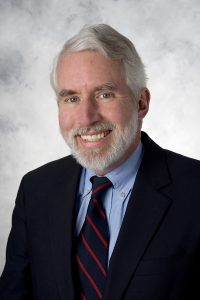As the No. 2 ranked clinical psychology graduate program (U.S. News and World Report, 2020), UNC’s department of psychology and neuroscience has a long history of faculty fostering strong working relationships with students.

In the late 1970s, one such student was Thomas Wadden (Ph.D. clinical psychology ’81), a native of Washington, D.C. As a graduate student, he had the opportunity to train under both Grant Dahlstrom, Kenan Professor of Psychology, and David Galinsky, professor and clinical supervisor of psychology.
Wadden says he was fortunate to receive a National Institutes of Mental Health Training Fellowship for his first two years at UNC.
“I received a priceless education at Carolina,” said Wadden, “and never received an invoice or bill! I was so appreciative of that support.”
“Starting research in graduate school is really a high-wire act,” Wadden added. “First, you’ve got to get a good idea, then you’ve got to turn it into an operational, testable hypothesis, and you need a mentor to help you do that. You need funding to conduct your research and hope that you’ll find results consistent with your hypothesis. I want to recognize these young investigators and encourage them to stick with it.”
Wadden said he was inspired by mentors such as Galinsky, Dahlstrom, Joe Lowman, Bernadette Gray-Little and his classmates. He deeply admires the work of Karen M. Gil (Lee Pederson Distinguished Professor and former College dean) and other current UNC faculty in mentoring and supporting their graduate students.

Two awards, set up in honor of Dahlstrom and Galinsky, are given annually to graduate students to support their academic, research and clinical training. Continuing in that tradition, Wadden established the Thomas A. Wadden Award for Training in Behavioral Medicine and Health Psychology, which will provide partial support for a clinical psychology graduate student working in these fields while completing graduate studies. The award may also be presented to a faculty member to advance his or her knowledge in this area.
As part of the same gift, a second award, for distinguished research in behavioral medicine and health psychology, will be presented biennially to a clinical psychology graduate student for recognition of research achievement in this area.
“Tom and his family have been strong supporters of the department over the years, making several major gifts to support clinical psychology graduate students,” Gil said. “The new Wadden awards will have a profound impact on our program.”
Terry Rhodes, dean of the College of Arts & Sciences, added, “Tom’s vision for supporting our clinical psychology graduate students during critical times in their research is especially meaningful given his life’s work. He knows from experience — from his time at Carolina and from throughout his career —what would help the most. We are so grateful for his generosity in establishing these two awards.”
Wadden is a clinical psychologist and educator who is known for his research in behavioral medicine and health psychology, particularly in the treatment of obesity through methods that include lifestyle modification and pharmacotherapy. He is the Albert J. Stunkard Professor of Psychology in Psychiatry at the Perelman School of Medicine at the University of Pennsylvania and former director of the university’s Center for Weight and Eating Disorders. He also is visiting professor of psychology at Haverford College.
Over the course of his career, Wadden has served on expert panels for the National Institutes of Health, the Federal Trade Commission, the Department of Veterans Affairs and the U.S. House of Representatives. His research has been recognized by awards from several organizations including the Association for the Advancement of Behavior Therapy and the Obesity Society. In 2007, he was recognized with the Distinguished Alumni Award from the UNC department of psychology and neuroscience.
By Andy Berner
